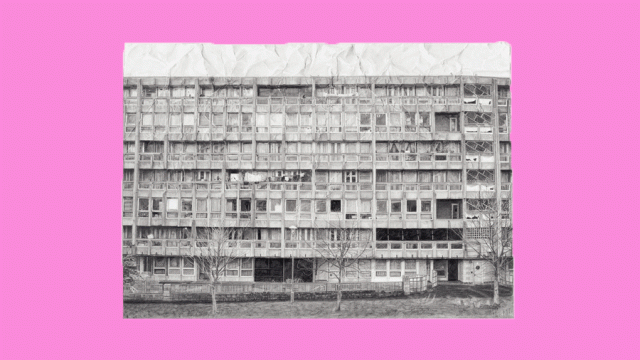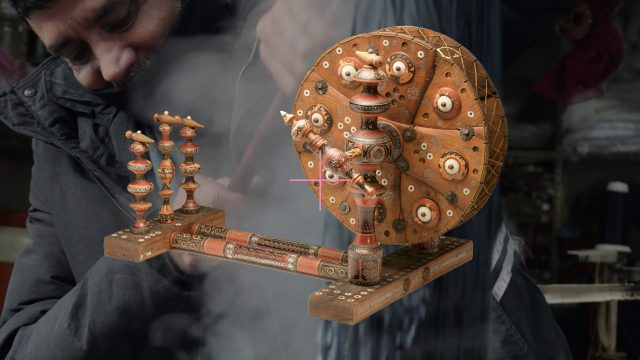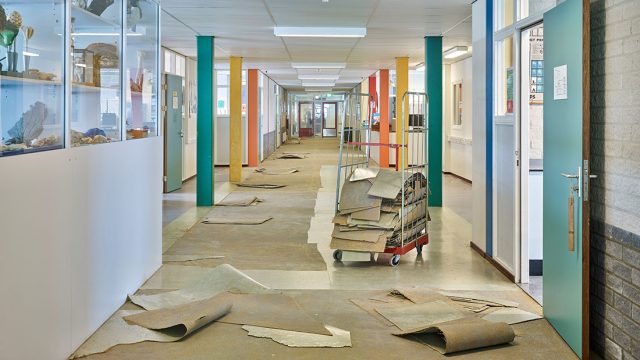In 2022, 12 people were selected by the V&A’s Make Good team to take part in a summer school in the woodlands of South Oxfordshire. The Field Notes summer school call-out invited applicants to reflect on how diversity – in all forms – is essential when developing sustainable ways of making with wood. Under the mentoring of foresters, academics, designers and museum professionals, the 12 chosen participants worked on their proposed projects during that summer, and the work they produced went on show in the V&A’s Field Notes display – on until 15 October 2023 (Room 133, Dr Susan Weber Gallery).
Rae Cox is a designer and furniture maker specialising in woodwork. Prior to the Field Notes summer school, her work encompassed a broad range of disciplines and materials. She designed a home-growing food system aimed at reducing carbon emissions, practiced digital manufacturing and 3D-printing, and developed a cutlery set designed to provide better hand stability to those living with a motor disability. Despite such a varied body of work, her approach demonstrates a consistent interest in exploring design’s potential to improve society.
For her Field Notes project, Rae wanted to reflect on her personal experience as a trans woman and – through the making process – overcome experiences of hate crime she was a victim of. Rae designed and made a step ladder that she titled Why do we hate others’ small differences?
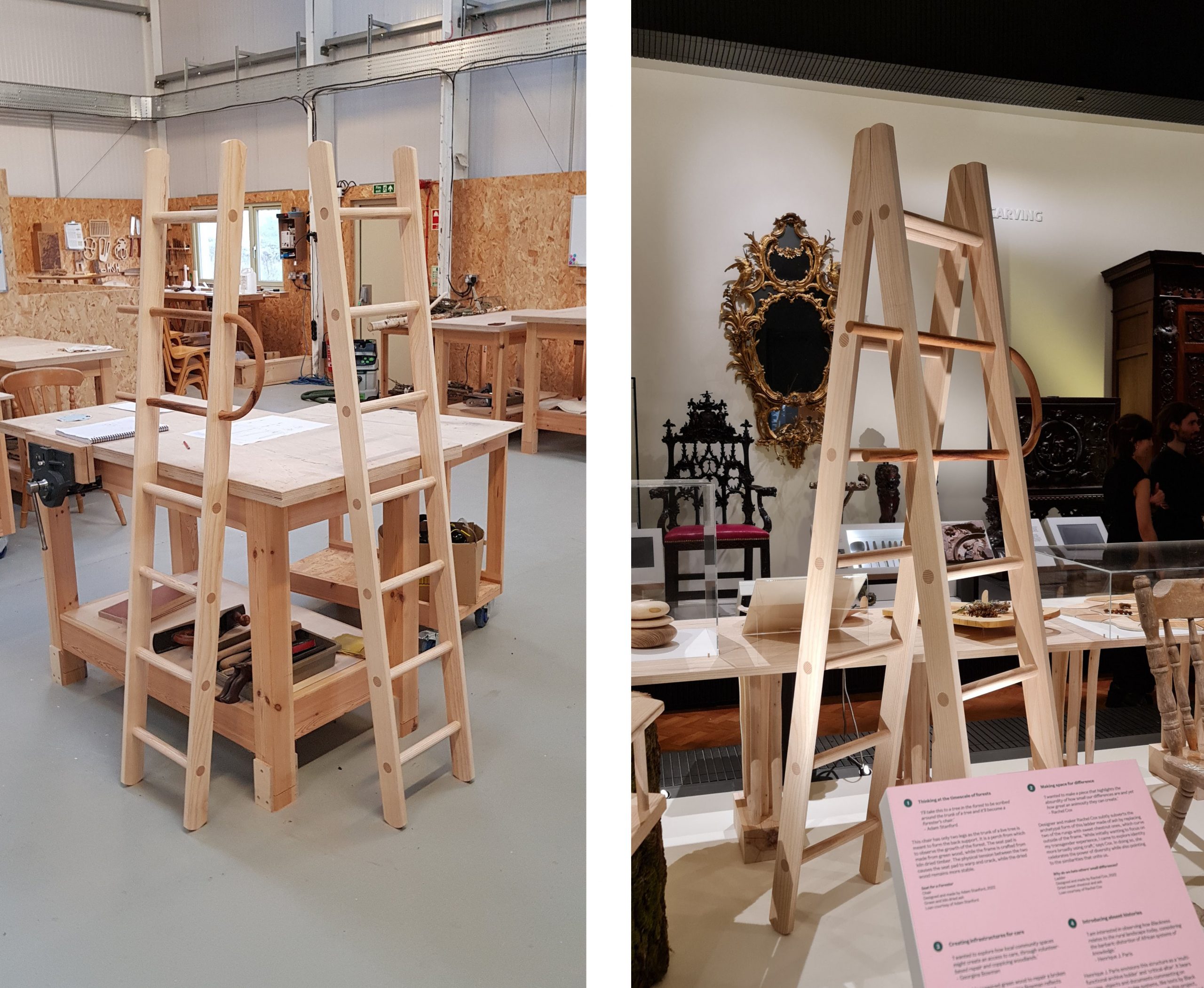
At a first glance the object looks like a regular ladder, but we soon notice a subtle subversion: two of the ash rungs are replaced with beams in darker chestnut that extend beyond the ladder’s frame, steam-bent to a 180° curve. Rae explains that this intervention ‘playfully highlights the absurdity of why we hate others based on things that barely separate us. In my case, what I wear and how I sound compared to people’s expectations is a tiny nuance compared to the weight of our shared humanity and experiences’.
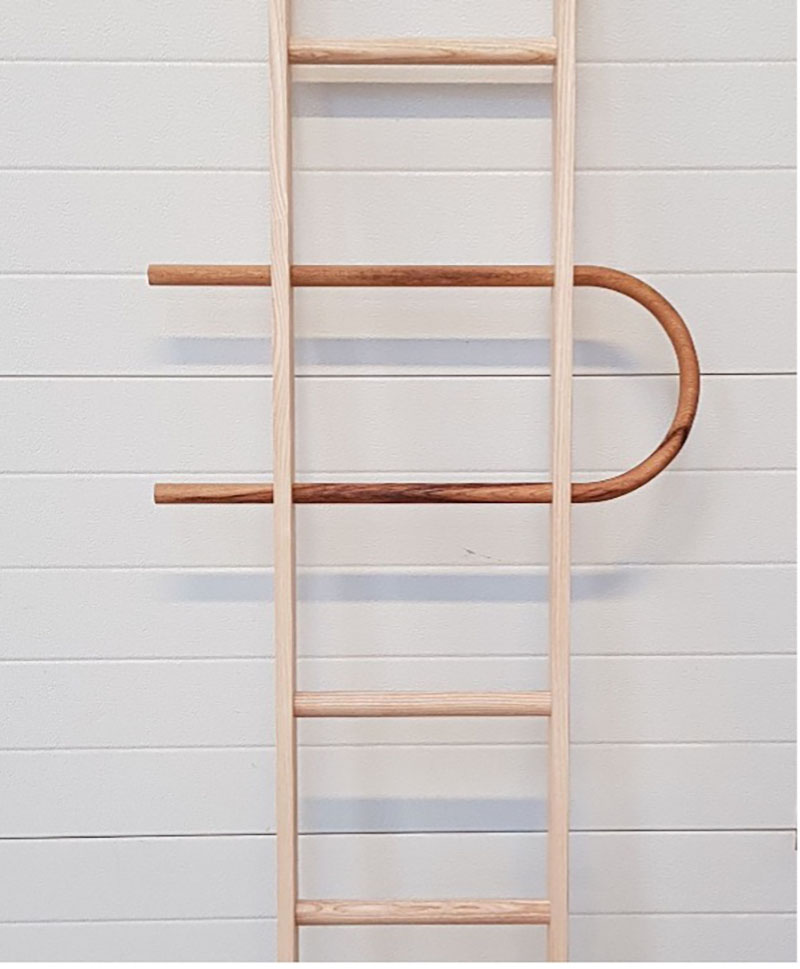
The ladder was made with English ash and chestnut – both timbers were locally sourced and certified, reflecting the environmental ethos of the project. The two woods have very different texture. The former has a very even, light figure, while chestnut shows darker, more defined patterns in its grain. In Rae’s ladder this contrast allows the chestnut to pop out at the viewer and ‘evoke a sense of disarming amusement’, as she puts it. In addition, Rae’s choice of material is charged with queer meaning. Both chestnut and ash trees can be approached through a queer framework, because of their gender binary nonconformity. Chestnut is a monoecious tree, meaning that both male and female flowers can be found on its branches, while ash trees can change gender during their life cycle. Rae’s decision to work with these two symbolically charged types of wood makes the ladder an object of interest within queer ecological discourse.
As a methodology, queer ecology refutes dualisms and the notion of normativity in favour of fluidity and interconnectedness. Rae noted that as her Field Notes project progressed, she started to reflect on ‘identity more generally, specifically how we can explore identity and difference in a gentler way’. By approaching identity ‘in a gentler way’, Rae demonstrates a broad and fluid understanding of the human condition that goes beyond essentialist definitions of sexuality and gender. More than a reference to Rae’s personal experience, the ladder is a trans and queer collective representation of the overt violence regularly directed at the community, while also reminding viewers of the queer ecological interconnectedness that levels all living beings. Why do we hate others’ small differences is subtle in its messaging. In her future works, however, Rae promises to be ‘more explicit in exploring the anxiety and tension of these troubling times for the queer community.’
Field Notes is the second iteration of Make Good: Rethinking Material Futures – a V&A curatorial public project investigating the use of natural, renewable materials in art, design and architecture. It invites practitioners from different fields to share research, knowledge and skills and considers the responsibilities of designers and consumers toward the natural world.
